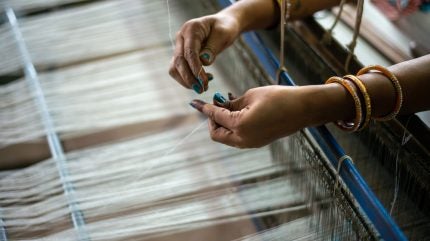
The ‘Landscape and Opportunities to Finance the Decarbonisation of India’s Apparel Manufacturing Sector’ report outlined solutions for mobilising sustainable financing to support the decarbonisation of India’s textile and apparel industry.
According to Aii, at 13% of total industrial output, India represents one of the apparel and footwear industry’s most important frontiers for decarbonisation to keep global warming within the necessary 1.5°C range.
The report identified at least $1.3bn in readily available financing from credit lines and revolving funding schemes and estimates an additional $1.2bn already being developed by International Financing Institutions, governments, and NGOs.
It highlighted six critical interventions, including mobilising capital with swift urgency and collaborating across the entire value chain.
Findings from the report
- An estimated $6.5bn in financing is required to reduce India’s total industry emissions by 45% by 2030 through renewable energy and energy efficiency interventions.
- While approximately $2.5bn is available, there is still a $4 bn financing gap in India.
- India boasts a well-established market of energy efficiency service companies, positioning the country to rapidly accelerate its decarbonisation efforts.
- Increasing accessible funding – particularly in the realm of blended finance – can make decarbonisation investments more affordable and can help manufacturers overcome sustainability transition challenges, including risk constraints, unfavourable financing and limited infrastructure.
“This report goes beyond exploring renewable energy and energy efficiency in India’s apparel sector – it provides a clear path forward and offers practical guidance to close the climate finance gap and ensure proven decarbonisation solutions receive the critical funding they need,” said Lewis Perkins, president of Apparel Impact Institute (Aii).
He continued: “Aii plays a crucial role in connecting our industry’s stakeholders – the report’s findings on India’s capital potential are encouraging as we continue our work in helping brands, manufacturers and international finance institutions accelerate the uptake of decarbonisation efforts across global manufacturing hubs.”
Emilio Bunge, president and CEO at DFI, pointed out that India’s apparel sector plays a pivotal role in global supply chains, noting that decarbonising its operations is not only essential for meeting climate goals but also for securing the future competitiveness of the industry.
Bunge added: “We are pleased to have worked with Aii on this report to outline how stakeholders can work together to accelerate the transition to a low-carbon apparel industry.”
Aii and DFI emphasised that as countries reflect on their pathways to meeting NDCs in the lead-up to COP29, the report outlines immediate actions for policymakers, financiers, and the industry value chain to support ongoing energy efficiency and renewable energy efforts in the country.
The report reiterated that financing is already available in India and that additional capital is ready to be unlocked, closing the gap in scaling innovative decarbonisation solutions.
In April, Aii set an ambitious target of reducing 100m tonnes of CO2 emissions from apparel and footwear supply chains by 2030 and identified six ways it intends to get there.



